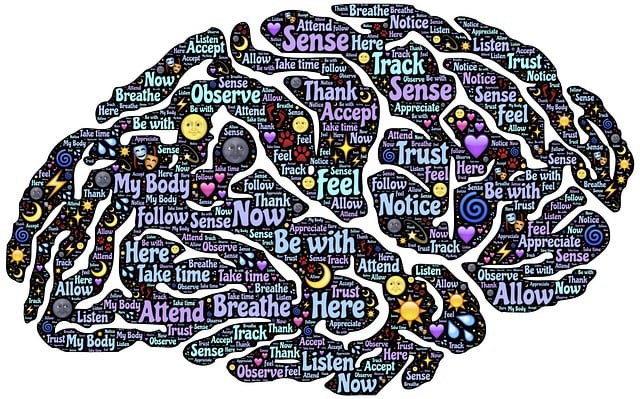Centennial First Responders Therapy is a specialized program designed to support police officers, firefighters, and paramedics by addressing their unique traumatic experiences and chronic stress levels. Using evidence-based practices in a non-judgmental environment, CFRT equips these essential workers with coping mechanisms and builds on their resilience. They offer mindfulness meditation techniques, communication strategies, and community outreach programs to enhance focus, reduce anxiety, improve team dynamics, promote emotional well-being, and reduce stigma surrounding mental health issues among first responders.
In today’s high-pressure environments, effective stress management techniques are paramount, especially for first responders facing chronic stress. This article delves into the profound impact of chronic stress on these heroes and introduces Centennial First Responders Therapy—an innovative approach designed to mitigate its effects. We explore practical daily techniques and long-term strategies, such as building resilience, to enhance the overall wellbeing of first responders. By implementing these methods, professionals can navigate the challenges they face with greater equilibrium.
- Understanding Chronic Stress and Its Impact on First Responders
- Centennial First Responders Therapy: An Innovative Approach
- Practical Stress Management Techniques for Daily Implementation
- Building Resilience: Long-Term Strategies for First Responder Wellbeing
Understanding Chronic Stress and Its Impact on First Responders

Chronic stress is a significant issue among first responders, who often face high-pressure situations on a regular basis. Centennial First Responders Therapy recognizes that these professionals, including police officers, firefighters, and paramedics, are at an increased risk of developing long-term mental health challenges due to prolonged exposure to traumatic events. The impact of chronic stress can manifest in various ways, affecting not only their emotional well-being but also physical health.
Self-esteem improvement is a crucial aspect of managing this invisible burden. Stress management workshops organized by such therapy centers equip first responders with essential coping mechanisms and tools to navigate through stressful scenarios. These workshops also emphasize the importance of risk assessment for mental health professionals, ensuring that those in the line of duty have access to timely support and intervention.
Centennial First Responders Therapy: An Innovative Approach

Centennial First Responders Therapy (CFRT) is an innovative approach designed to support individuals who have experienced trauma, focusing on first responders like police officers, firefighters, and paramedics. This therapy recognizes the unique challenges these professionals face in their line of duty, often leading to heightened stress levels and mental health concerns. CFRT aims to build upon their inherent resilience by helping them process traumatic experiences and develop coping mechanisms that enhance their inner strength.
By employing evidence-based techniques, CFRT facilitates a safe space for first responders to share their stories and emotions without the fear of judgment or exacerbating the mental illness stigma. This supportive environment encourages open dialogue, fostering mental health awareness and resilience within the community of first responders. Through CFRT, individuals can learn effective strategies to manage stress, improve their overall well-being, and lead more fulfilling lives.
Practical Stress Management Techniques for Daily Implementation

In today’s fast-paced world, stress management is a vital skill for everyone, especially those in high-pressure professions like first responders. Centennial First Responders Therapy offers practical techniques to help individuals cope with the demands of their roles and maintain emotional well-being. One effective strategy is mindfulness meditation, which encourages focus on the present moment, reducing anxiety and improving focus. Even short daily practices can significantly enhance resilience to stress.
Additionally, communication strategies play a crucial role in managing stress within teams. Open dialogue fosters an environment where first responders can share their experiences, seek support, and develop coping mechanisms together. Public Awareness Campaigns Development can also contribute to emotional well-being promotion by educating the public about the challenges faced by these heroes, reducing stigma, and encouraging community support.
Building Resilience: Long-Term Strategies for First Responder Wellbeing

First responders often face unique challenges on a daily basis, leading to heightened stress levels and an increased risk of mental illness. Building resilience is a long-term strategy to enhance their wellbeing and cope with the inherent demands of their roles. Centennial First Responders Therapy recognizes the importance of fostering emotional agility and healthy coping mechanisms. Through tailored interventions, they aim to reduce the stigma surrounding mental health issues within these critical professions.
Implementing community outreach programs and empathy-building strategies can make a significant difference. By connecting with peers and communities, first responders can find support networks that encourage open dialogue about stress management. These initiatives promote a culture of care, ensuring that individuals feel understood and empowered to prioritize their mental health.
The journey towards managing stress among first responders is a crucial step in ensuring their well-being and effectiveness. By understanding the unique challenges they face, we can implement powerful tools like Centennial First Responders Therapy, offering innovative solutions to mitigate chronic stress. Practical daily techniques, combined with long-term resilience-building strategies, empower these brave individuals to navigate stressful situations and lead healthier, more balanced lives. It’s time to recognize and support the mental health of first responders, fostering a culture that values and preserves their resilience.













